In advance of football clubs starting to publish their accounts for the 2021/22 season, I thought it might be helpful to share some 2-page financial overviews for each of the Premier League clubs for 2020/21, including a comparison against prior year and a 5-year graphical trend.
These overviews also include Premier League rankings for each of the main financial categories, e.g. which club had the highest profit, loss, revenue, wages, debt, transfer spend, etc in 2020/21.
One caveat with these figures is that revenue was significantly impacted by COVID in 2020/21 with match day reduced to almost zero, as games were played behind closed doors, while some broadcasting income was deferred from 2019/20 for matches played after the accounting close.
Arsenal 2-page financial overview for 2020/21 #AFC 



Aston Villa 2-page financial overview for 2020/21 #AVFC 



Brighton & Hove Albion 2-page financial overview for 2020/21 #BHAFC 

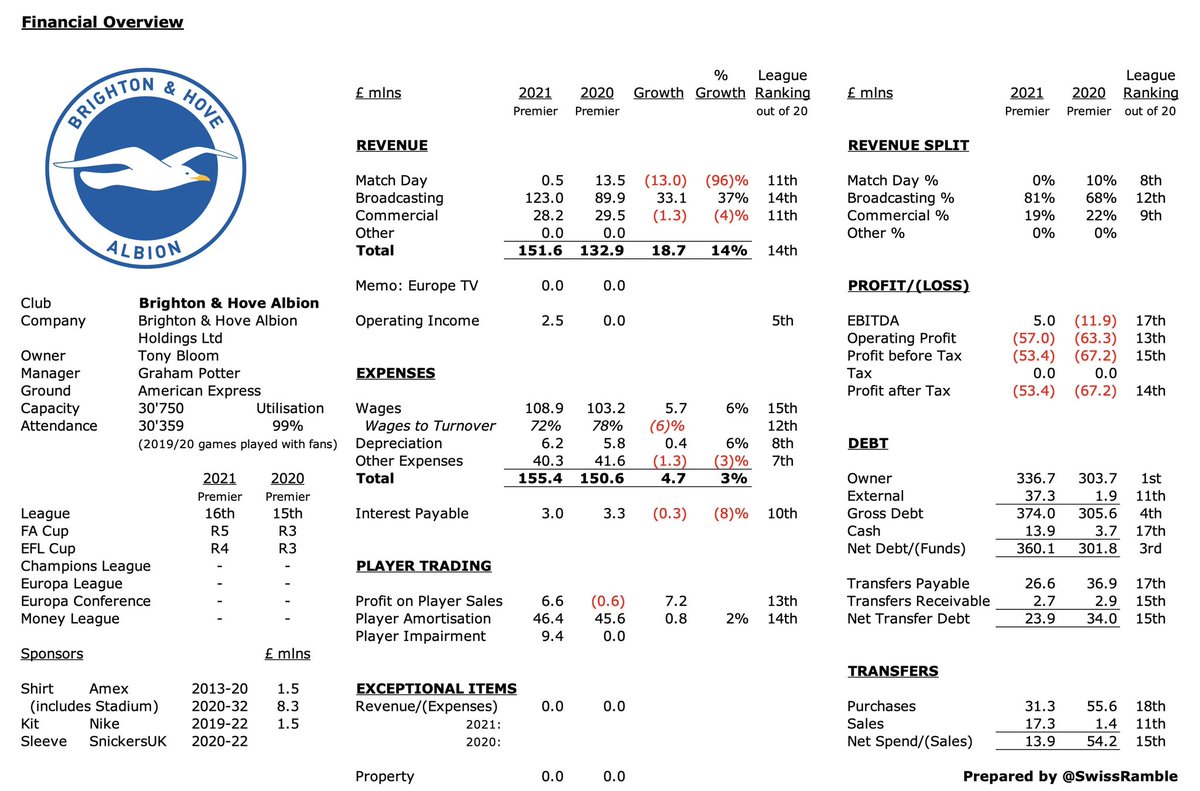
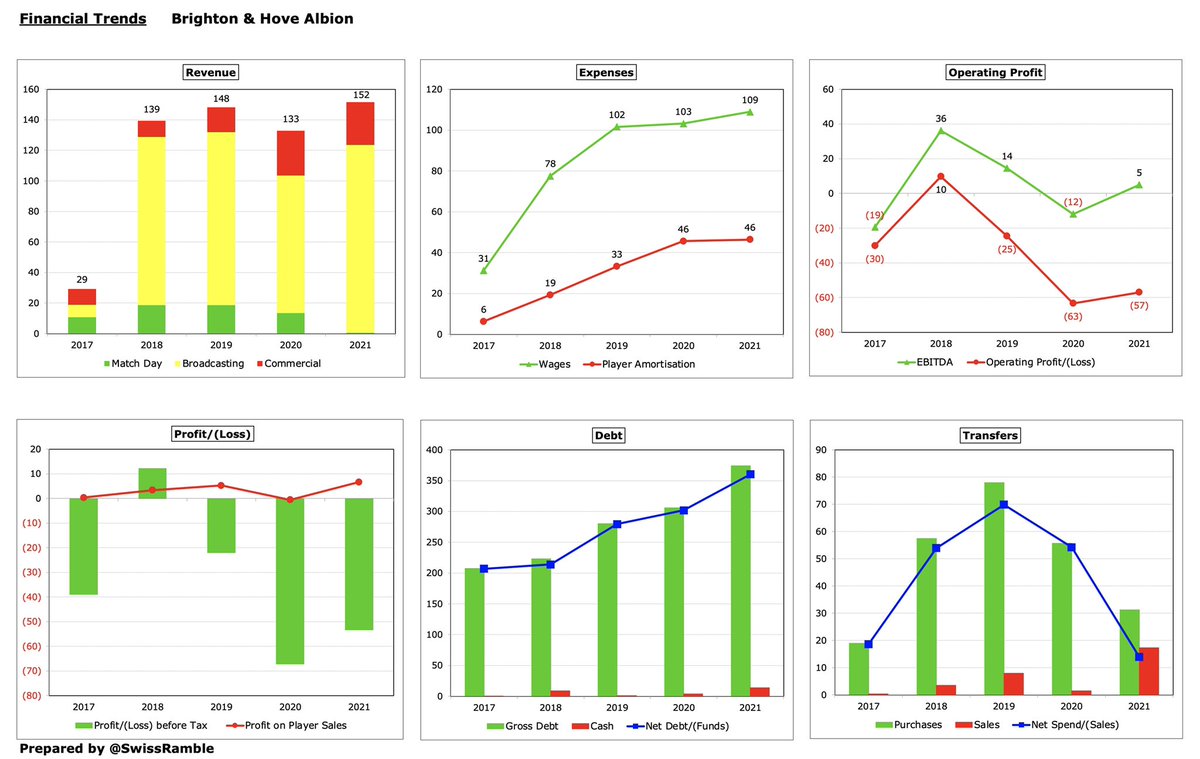
Burnley 2-page financial overview for 2020/21 #BurnleyFC 


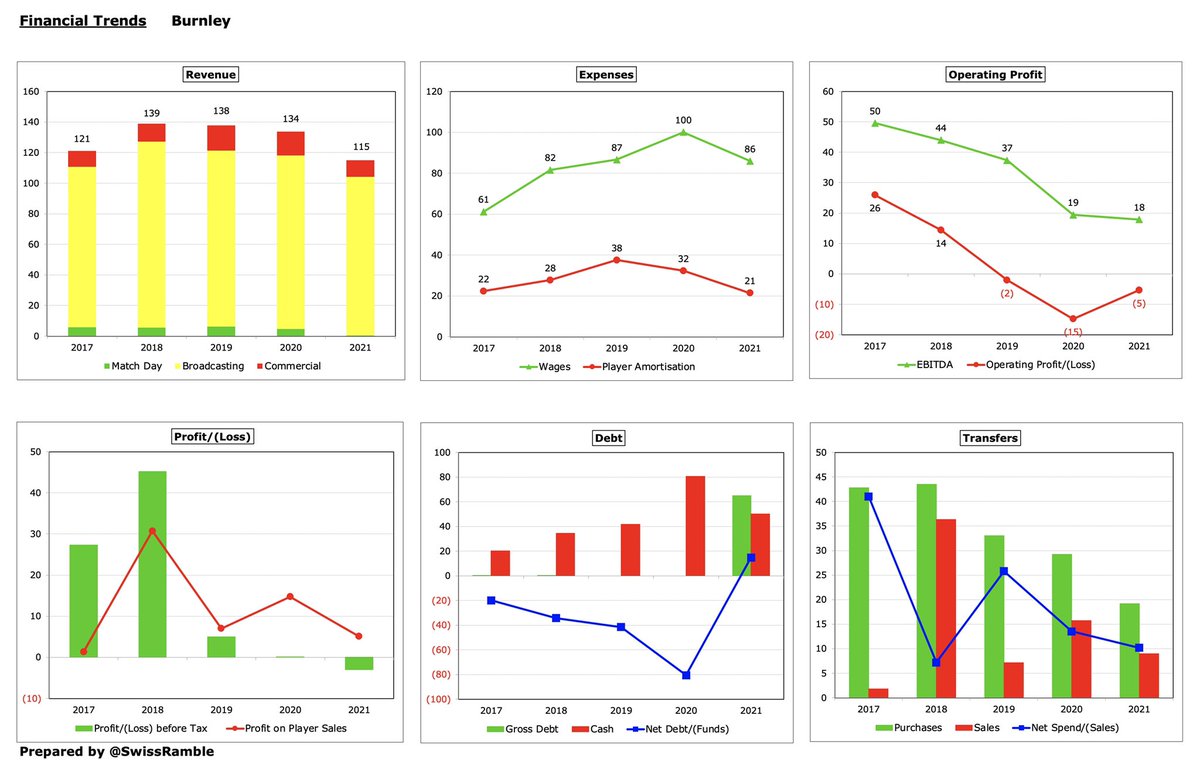
Chelsea 2-page financial overview for 2020/21 #CFC 



Crystal Palace 2-page financial overview for 2020/21 #CPFC 



Everton 2-page financial overview for 2020/21 #EFC 



Fulham 2-page financial overview for 2020/21 #FFC 



Leeds United 2-page financial overview for 2020/21 #LUFC 

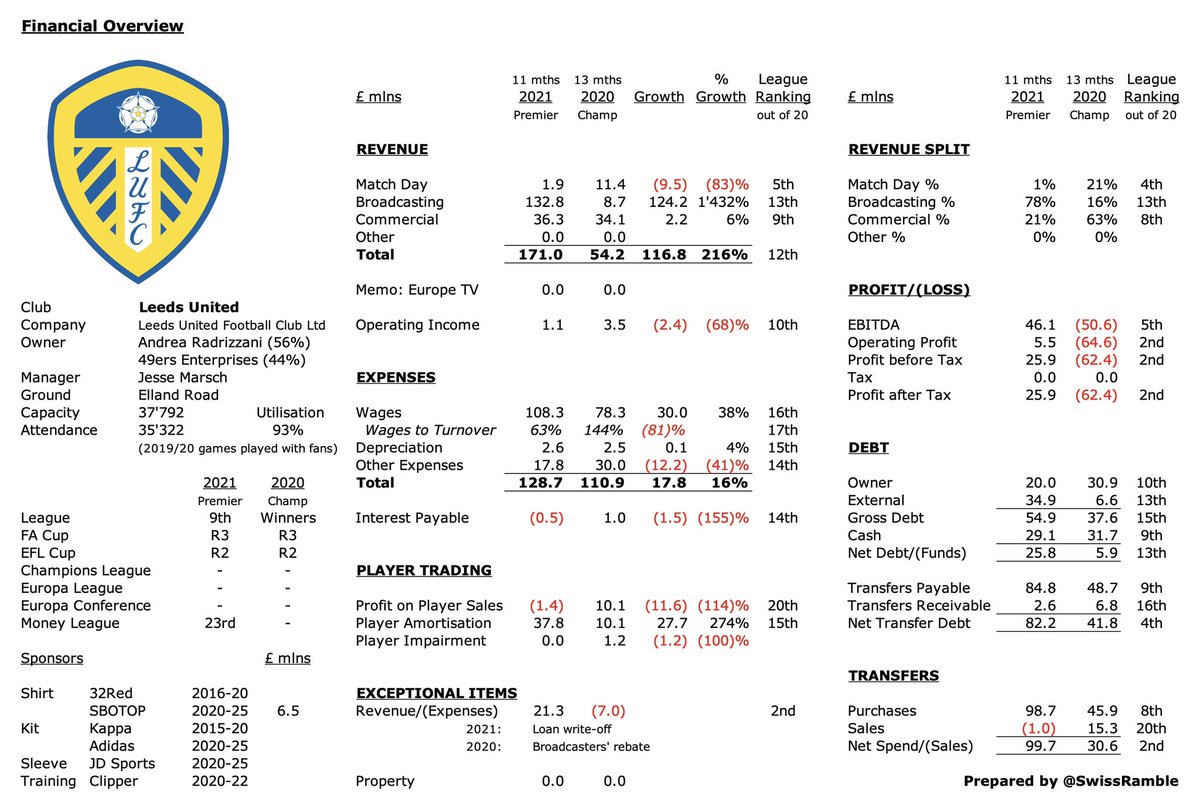

Leicester City 2-page financial overview for 2020/21 #LCFC 

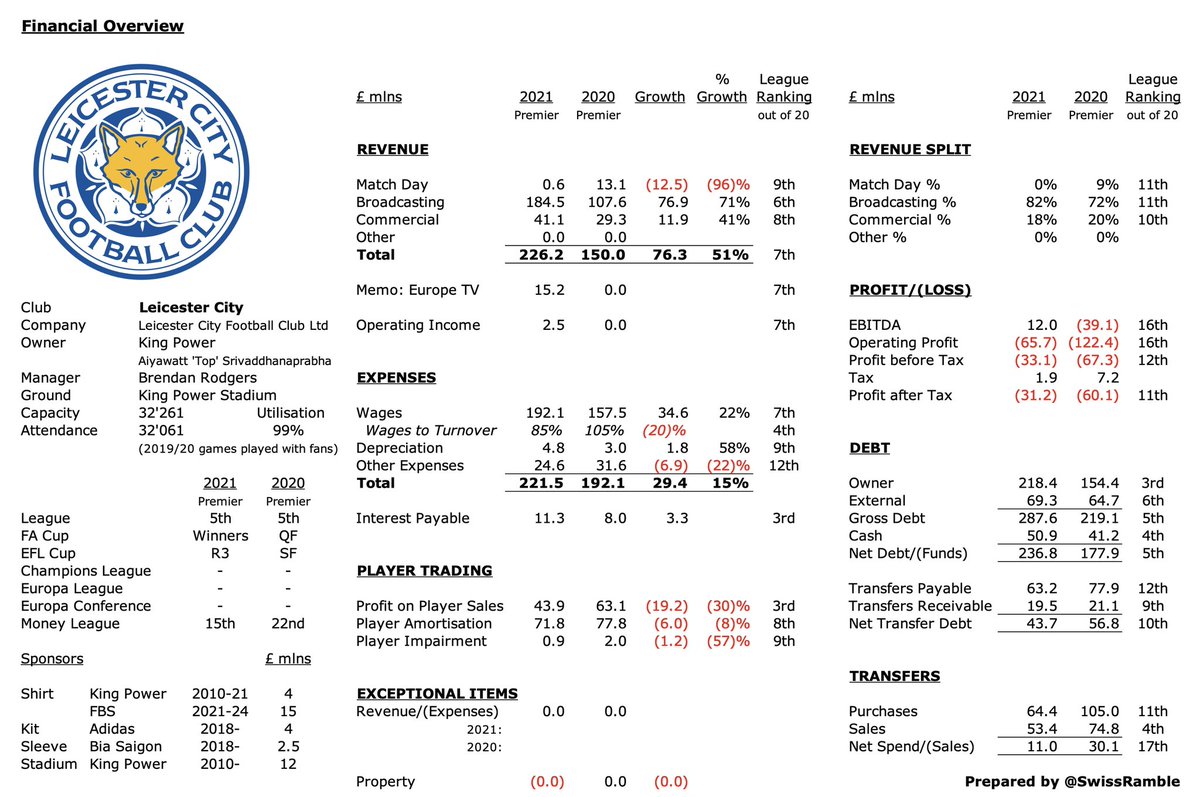

Liverpool 2-page financial overview for 2020/21 #LFC 

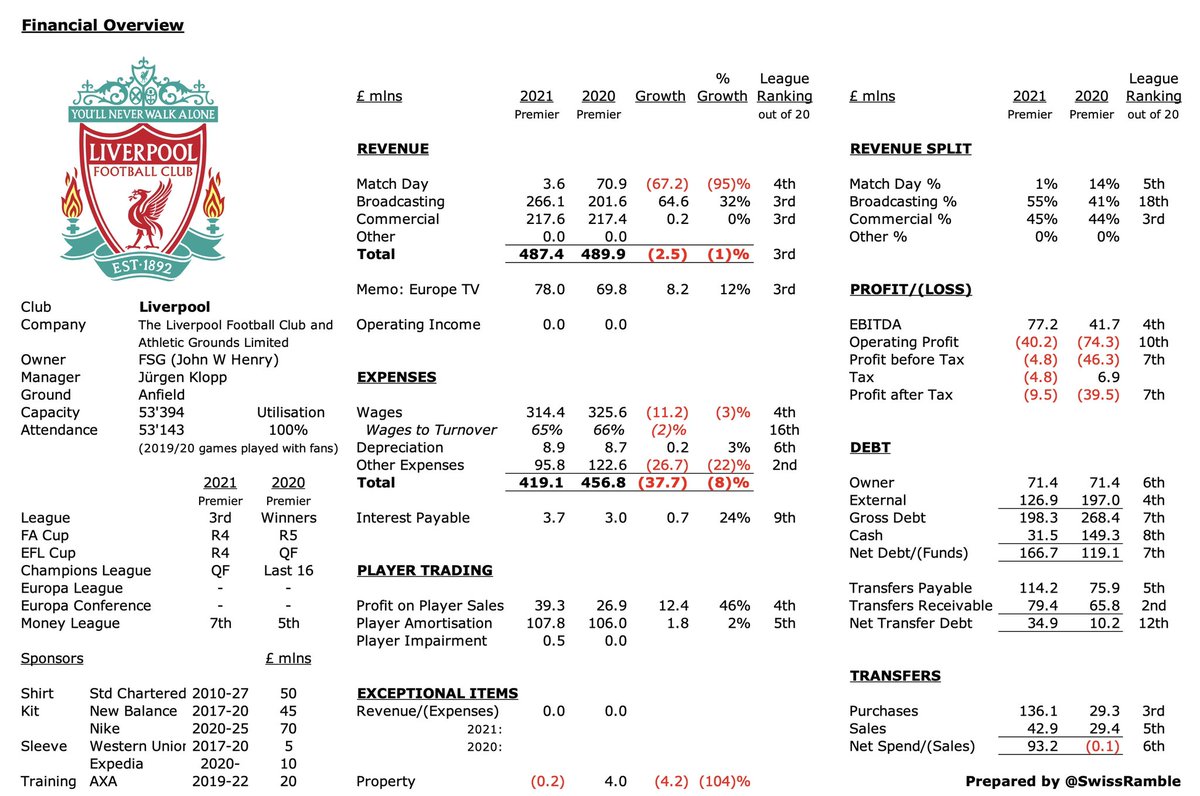

Manchester City 2-page financial overview for 2020/21 #MCFC 



Manchester United 2-page financial overview for 2020/21 #MUFC 

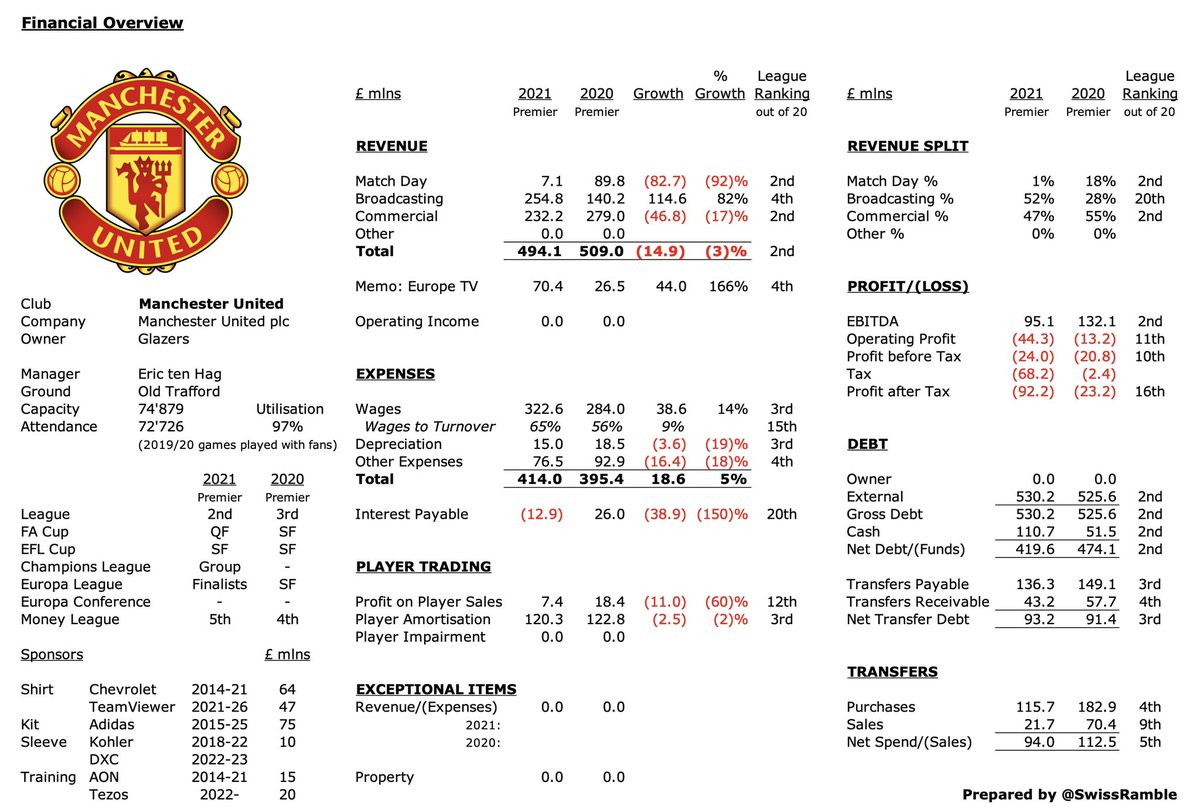

Newcastle United 2-page financial overview for 2020/21 #NUFC 

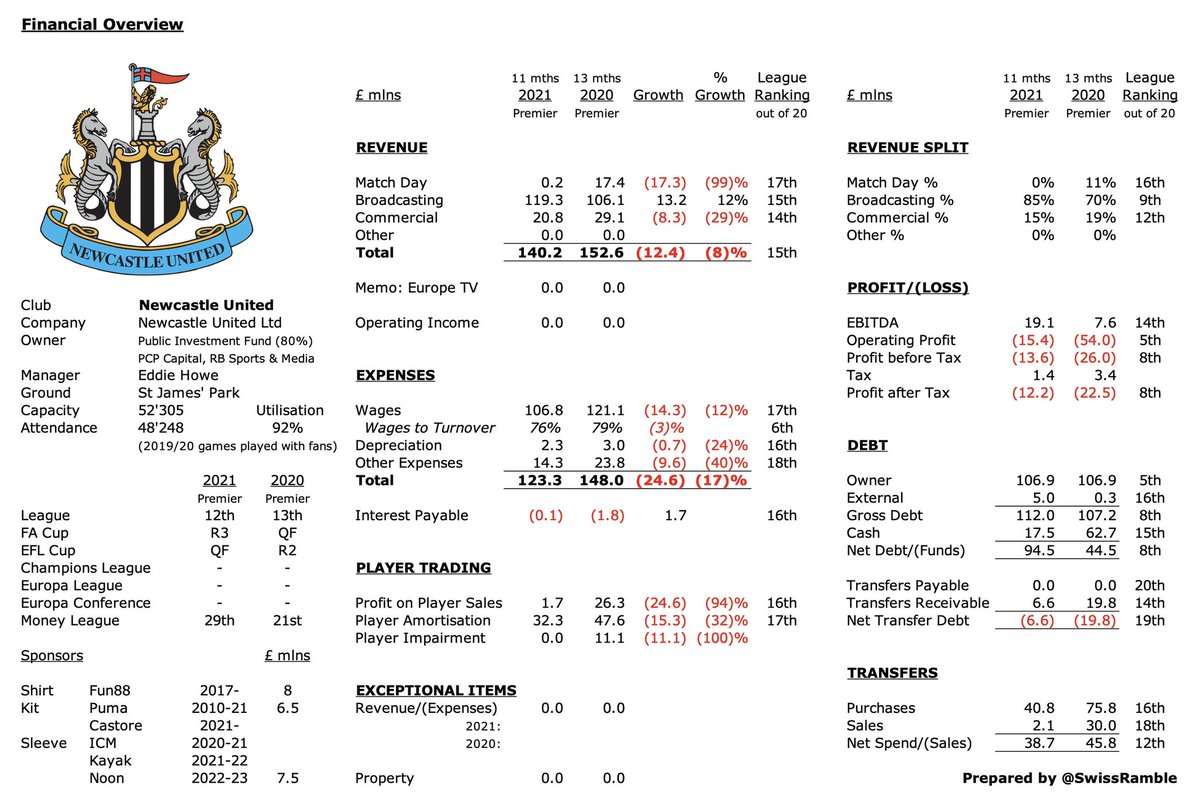

Sheffield United 2-page financial overview for 2020/21 #SUFC 



Southampton 2-page financial overview for 2020/21 #SaintsFC 



Tottenham Hotspur 2-page financial overview for 2020/21 #THFC 



West Bromwich Albion 2-page financial overview for 2020/21 #WBA 

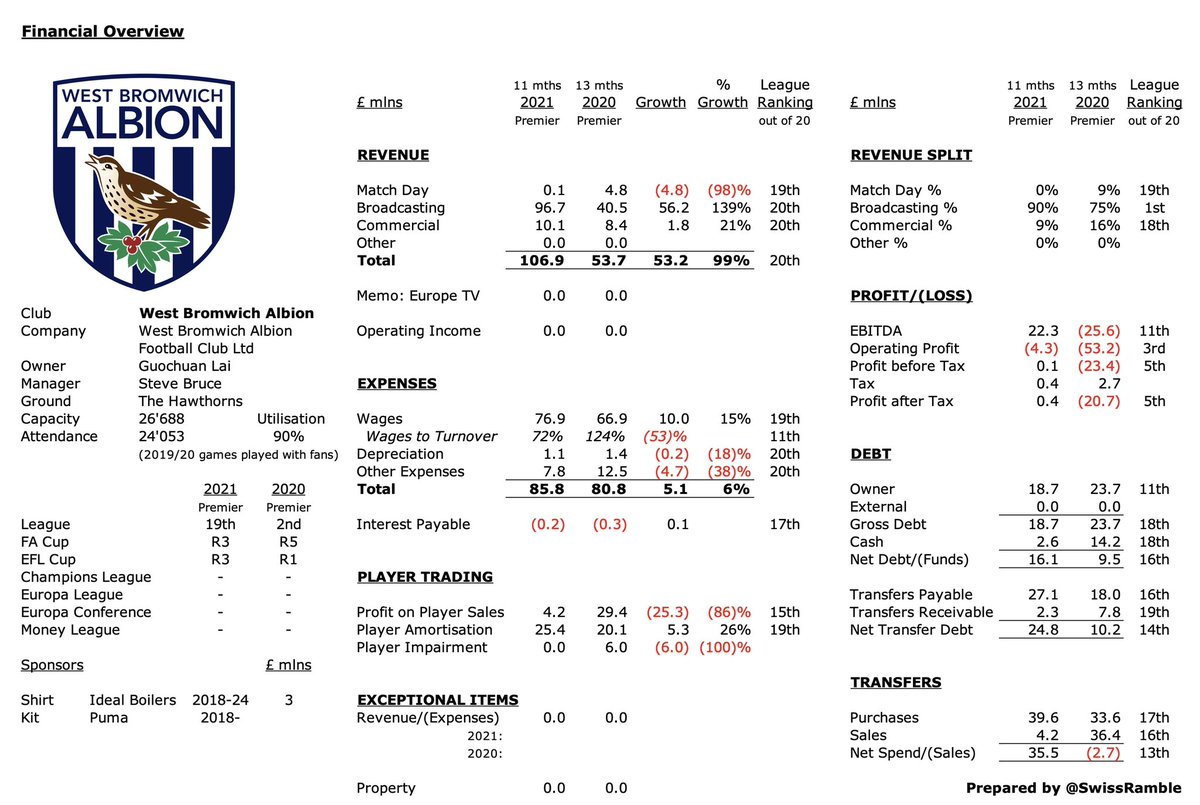
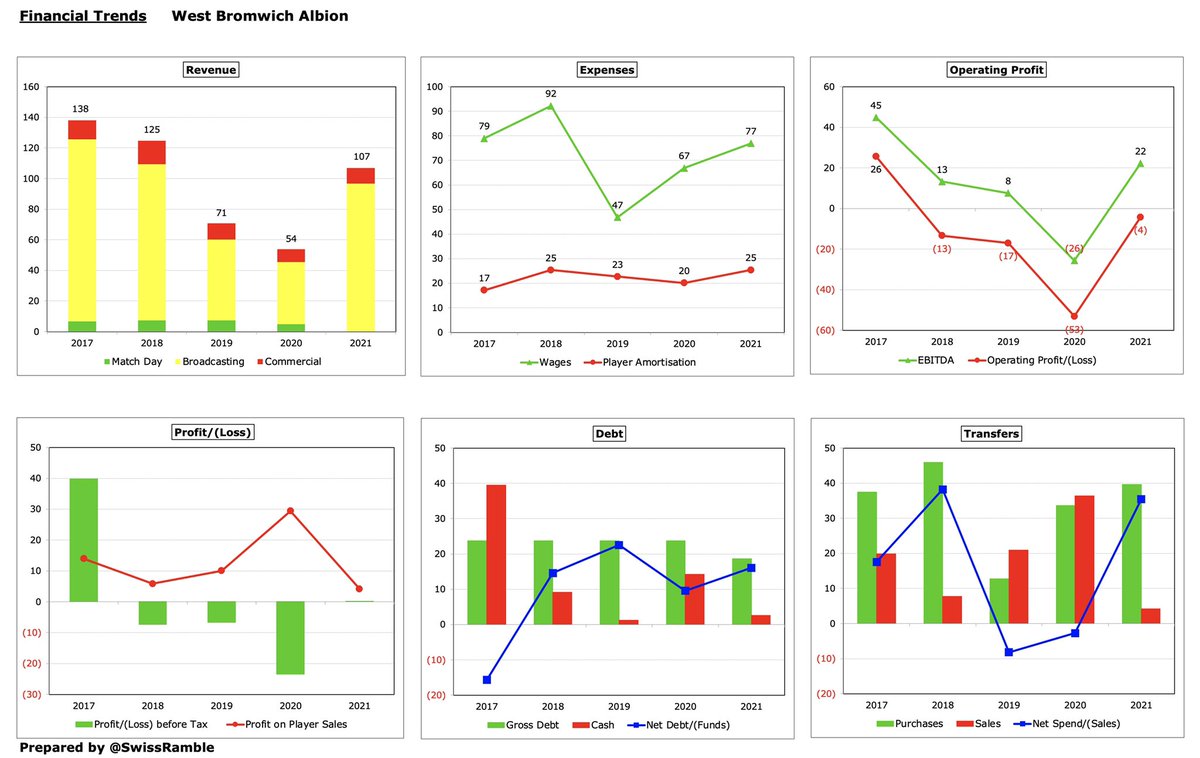
West Ham United 2-page financial overview for 2020/21 #WHUFC 



Wolverhampton Wanderers 2-page financial overview for 2020/21 #WWFC 



Notwithstanding the issues caused by COVID, hopefully these summaries are of some use to fans of each club.
Usual service will be resumed when clubs start publishing their accounts for the 2021/22 season.
Usual service will be resumed when clubs start publishing their accounts for the 2021/22 season.
• • •
Missing some Tweet in this thread? You can try to
force a refresh























